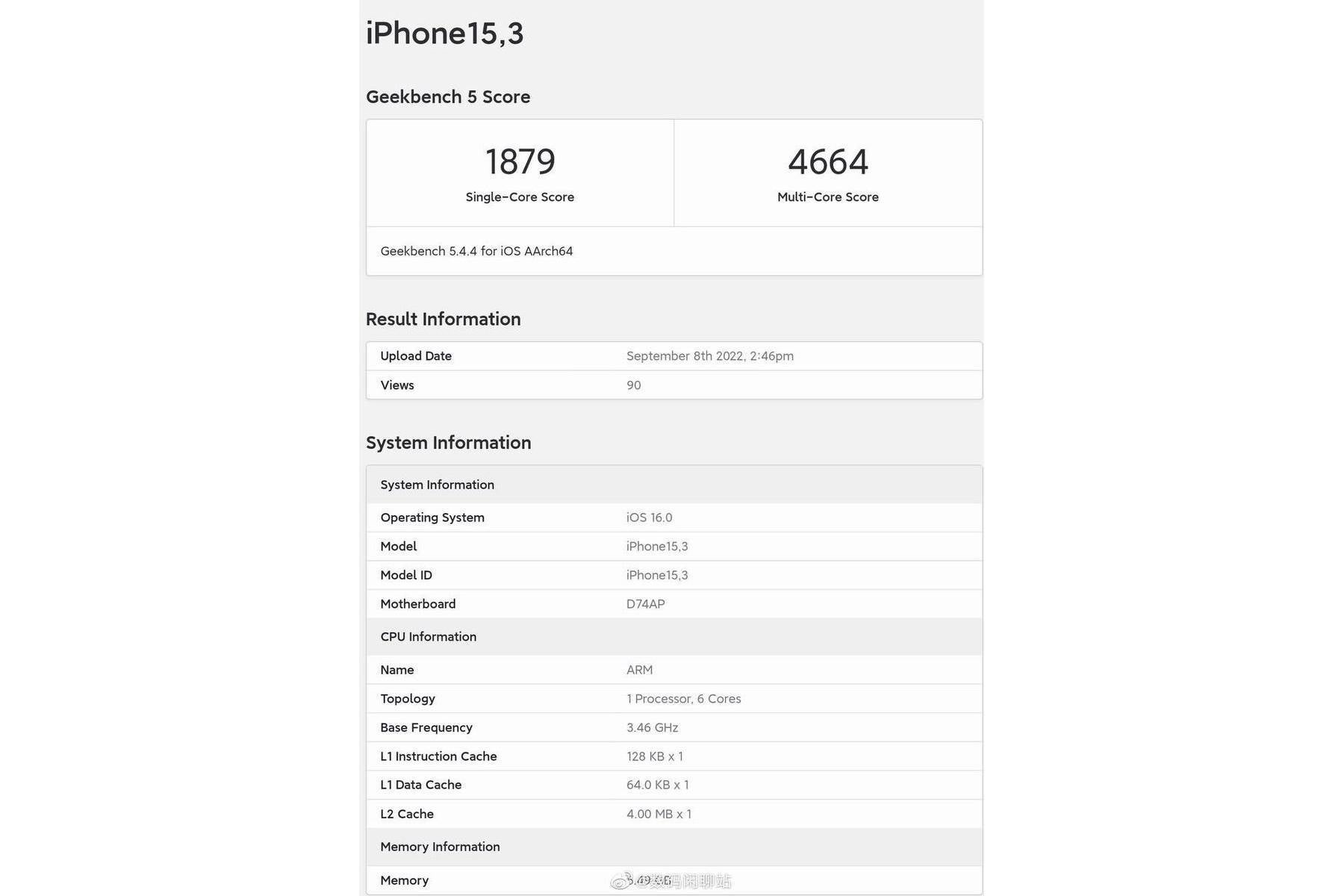iPhone 14 Pro's powerful A16 Bionic chip destroys Android competition in benchmark results

Rumors were circulating around before iPhone 14's release that the A16 Bionic chip meant for the iPhone 14 Pro and iPhone 14 Pro Max will be based on the 5nm tech and not the slightly more advanced 4nm node but they turned out to be false. Apple calls the new chip 'the fastest chip ever in a smartphone,' but the real question is how much faster is it than the A15 Bionic that's inside the iPhone 13 Pro and Pro Max? Alleged Geekbench scores may give us an idea of the performance.
The 6.1-inch iPhone 14 Pro and the 6.7-inch iPhone 14 Pro Max come with a host of new features such as the pill and hole cutouts-based Dynamic Island interface for notifications and activities, a new higher resolution 48MP camera, and brighter screens with the Always-On mode.
The A16 Bionic chip features two high-performance cores and four high-efficiency cores and Apple claims that the CPU is up to 40 percent faster than chips from rivals. It also has an accelerated 5-core GPU with 50 percent more memory bandwidth and a new 16-core Neural Engine that can perform around 17 trillion operations per second.
Instead of comparing it with the A15 Bionic chip, which continues to power the 6.1-inch iPhone 14 and 6.7-inch iPhone 14 Plus, Apple pitched it up against competing chips, claiming it offers more performance with a fraction of the power compared to competing SoCs.
Leaker ShrimpApplePro has today posted Geekbench scores for the iPhone 14 Pro and the results are not that impressive in terms of raw numbers.

Alleged iPhone 14 Pro benchmark scores
The iPhone 14 Pro apparently got 1,879 on the single-core test and 4,664 on the multi-core test. For reference, the iPhone 13 Pro Max got 1,734 and 4,818 points on the same test. Samsung's latest foldable flagship, the Galaxy Z Fold 4, which is fueled by Qualcomm's premium Snapdragon 8 Plus Gen 1 SoC, scored 1,304 and 3,782 on the single-core and multi-core tests, respectively.
There are a couple of things to keep in mind here. Firstly, the A15 Bionic is already ahead of the competition, so Apple didn't really need to work that hard on the A16, and secondly, the iPhone 14 Pro test results are likely based on a pre-release unit, so there is likely room for improvement, and the official models will probably perform better.
Also, a chip doesn't just exist to boost performance but also helps with other features. Apple is emphasizing the fact that it will enable an all-day battery life and is also behind the computational photography features.
Apple will open pre-orders on September 9 and the phones will be released on September 16.













Things that are NOT allowed: